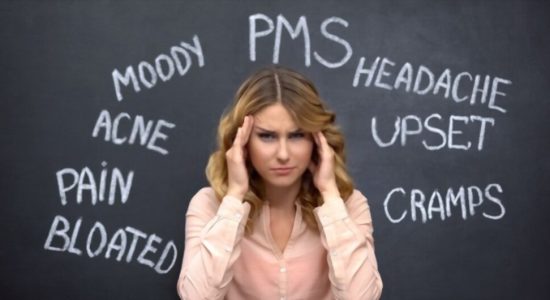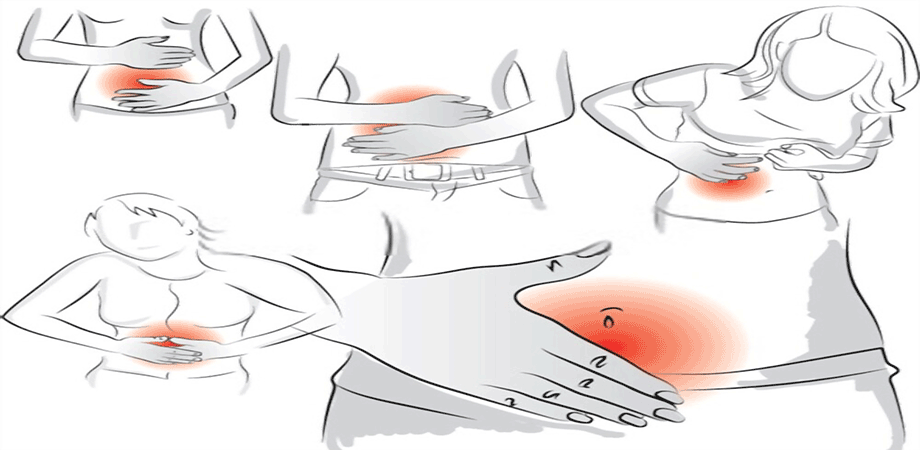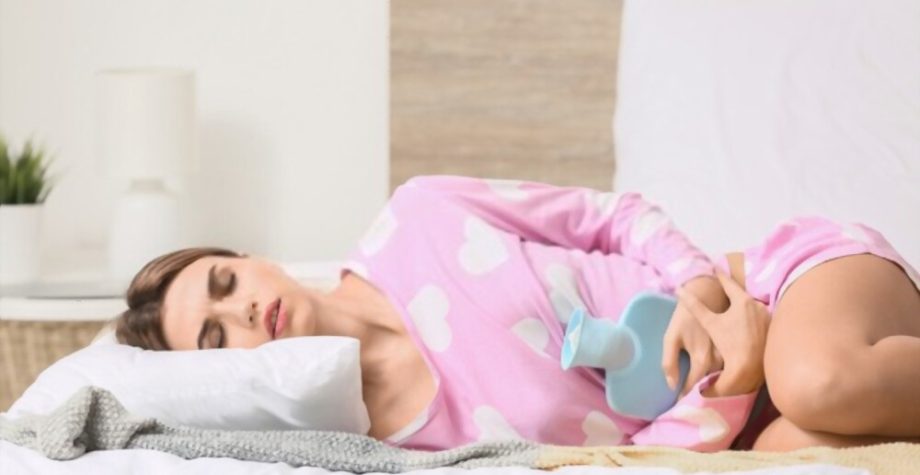
Numerous scientific journals and articles have been written about period pain, headaches, and PMS. These terms refer to the various symptoms and discomforts women experience during their menstrual cycle. While the symptoms are common and not harmful, they can be uncomfortable for a woman’s daily life. There are many ways to manage period pain and other menstrual symptoms, so speak with a doctor if they are becoming severe or impacting the quality of life. This article is an attempt to discuss the various aspects of PMS, relief from period pain, relief from period cramps and many period pain relief tips.
What is PMS?
PMS, or premenstrual syndrome, is a collection of symptoms that some women experience in the days leading up to their period. These symptoms can include mood swings, bloating, fatigue, and cravings. While PMS is not dangerous, it can be uncomfortable and disruptive. Many women find over-the-counter medications, such as ibuprofen, effective against PMS symptoms. However, if you are experiencing severe or persistent symptoms, kindly speak with your doctor or healthcare provider to determine the best course of treatment.
PMS Symptoms
While PMS symptoms are frequently mild or moderate and have no influence on daily life, they can be severe enough to interfere with your daily activities and overall well-being. Anxiety, restlessness, and tenseness are among the symptoms.
- Unusual irritation and rage
- Appetite changes, including increased food desires, particularly for sweets
- Changes in sleep patterns, such as exhaustion and difficulty sleeping in a gloomy mood, may include tearfulness or uncontrolled weeping.
- Fast mood swings and emotional outbursts
- Period pain can include cramping, bloating, nausea, and fatigue. Headaches during this time may be due to hormonal changes and dehydration of the body.
Menstrual Cramps

Menstrual cramps can range from little aggravation that lasts a day or two to many days of excruciating discomfort that interferes with daily activities. They are one of the most prevalent causes of pelvic discomfort, and many women have them before and during their periods. Uterine contractions that occur immediately before or during the commencement of menstruation produce pain. The uterus contracts during menstruation to help remove its lining. Prostaglandins are hormone-like molecules that cause these contractions. Menstrual cramp is associated with higher amounts of prostaglandins. Some women experience intense menstrual cramps for no apparent reason. Others may have severe menstrual cramps as an underlying medical problem.
What is a Period or PMS headache?

Is headache a symptom of a Period? Period headaches are a type of headache that some women experience during their menstrual cycle. They can occur due to many factors, including hormonal changes, stress, & dehydration. Many women find that over-the-counter pain medication is effective in relieving period headaches. However, if you are experiencing severe or persistent headaches, consult your doctor to determine the best course of treatment.
What is the severity?

There is no one answer to this question, as period pain can vary from woman to woman. Some women experience very mild cramping or discomfort, while others may have severe pain that interferes with their daily activities. In general, period pain is caused by the contraction of the uterine muscles as they attempt to shed the uterine lining. It can lead to cramping, bloating, and other symptoms. Some women find relief with over-the-counter pain medication, while others may need strong prescription medications. If you are experiencing severe period pain, it is time to speak with your doctor or healthcare provider to determine the best course of treatment.
What the pain feels like?
Period cramps might feel like an aching, intense, stabbing pain or a constant, dull agony. It is felt lower in the abdomen than in the stomach, & the discomfort may extend to your upper legs & lower back. Although the stomach may be disturbed, period cramps will be located lower in your belly than stomach pain. The uterine lining loses blood during menstruation. During this period, the body produces prostaglandins, which induce an inflammatory reaction that causes the uterus to contract, resulting in cramps. Cramping generally begins the day before or on the first day of bleeding. Cramps should not last the entire period.
Some people experience nausea, exhaustion, headache, vomiting, loose stool, and diarrhea with cramping. These cramping symptoms may be usual from the onset of a period. If the cramps are light and suddenly start to feel different, such as increased pain, more bleeding, or other changes in symptoms, you should see a gynecologist. Seek medical attention if you start suffering pelvic discomfort outside your menstruation.
Effects of period pain on social life?

Period pain can have a significant impact on social life. Many women find that their pain prevents them from participating in activities they enjoy, such as sports, exercising, or going out with friends. Additionally, period pain can make it difficult to concentrate. Anyone struggling to manage pain should speak with their doctor or healthcare provider. They can help you develop a plan to manage your symptoms and minimize the impact on your social life.
Relief From Period Pain
Medical Treatments
There are a variety of period pain relief medications available in the market. However, many women make mistakes in managing PMS or period pain. OTCs can be harmful in the long run, while natural remedies and elements are often more effective. It is essential to know the options available and choose the one that is best for you.

There is a variety of OTC drugs available to relieve period pain, but they can have harmful side effects. If over-the-counter pain relievers are not helping, your doctor may prescribe strong medications. The most common OTC drugs for period pain are ibuprofen and acetaminophen. Both of these drugs can cause gastrointestinal problems, dizziness, and drowsiness. If you experience any side effects, immediately stop the drugs and consult your doctor.
Paracetamol (also known as acetaminophen):
Paracetamol is a common OTC medication for period pain relief. However, many women are unaware of the potential risks associated with taking this medication. Regular Paracetamol is harmful to the liver and kidneys and may also increase the risk of certain types of cancer. If you consider taking paracetamol for your period pain, first speak with your doctor to weigh the risks and benefits.
Nonsteroidal anti-inflammatory drugs:
NSAIDs are another over-the-counter medication for period pain relief. NSAIDs reduce inflammation, which can help ease the pain and cramping associated with menstrual periods. However, like paracetamol, NSAIDs can also have potentially harmful side effects. NSAIDs can cause stomach ulcers and may also increase the risk of certain types of cancer. If you are considering taking an NSAID for your period pain, consult your doctor to weigh the risks and benefits.
For some women, hormonal birth control can help to reduce period pain. If you have severe pain that is not responding to treatments, your doctor may suggest surgery to remove the uterus (hysterectomy).
Natural Remedies
There are several natural options available to manage your period pain. One option is to use heating pads or hot water pads placed on your lower abdomen or back to relieve some pain. Relaxation techniques such as deep breathing or meditation can help ease the pain. It is essential to stay hydrated and eat healthy foods during your period to help your body cope with the added stress.

Some women find relief from drinking ginger tea or eating ginger in other forms. You may also want to try taking a dietary supplement like evening primrose oil, which has shown to reduce period pain in some studies. You may also try our natural essential oil pain relief blend solution, “ D E E P – R E L I E F ” which has shown very impressive results in relief from period pain. After using our oil blend, you may not feel the need to look for other alternatives.
Change in diet:
A change in diet may also help to ease period pain. Some women find that eating foods high in fiber and low in fat can help to reduce the pain and cramping associated with their menstrual periods. Others find relief by avoiding caffeine, salt, & sugar. There is no one-size-fits-all solution to diet & period pain relief, so it is important to experiment to see what works best for you.
Few common mistakes to avoid
There are a few common mistakes women make during their periods and PMS that end up causing the pain and cramping to worse. One of the most common mistakes is drinking alcohol during this time. Alcohol can dehydrate the body and worsen cramping. Another mistake is to eat sugary or salty foods, which can also exacerbate cramping. Caffeine is another substance to be avoided, as it can also contribute to dehydration. To lower period pain, avoid these common mistakes and focus on a healthy diet and staying hydrated.
How to talk about period pain?
If you experience period pain, talk to your doctor about it. It can be a difficult conversation, but it helps to know the facts and get the needed help. You may also want to talk to a close friend or family member about your experience with period pain. It can help you feel more comfortable discussing the issue and can help break down the stigma around women’s health issues.

